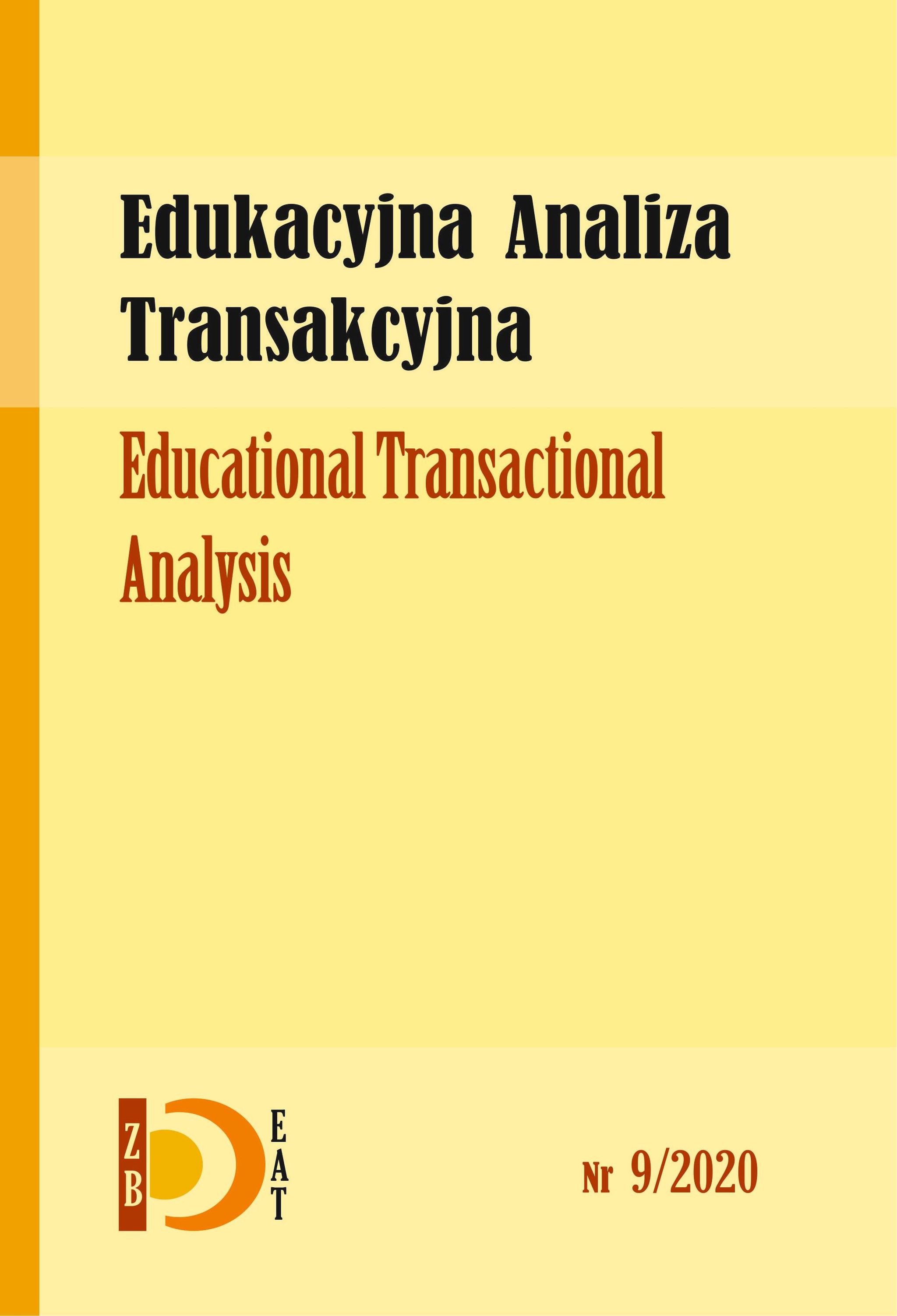Once upon a time, in a supervisor’s office
phenomena occurring in TA supervision at early stages of psychotherapist’s development
DOI:
https://doi.org/10.16926/eat.2020.09.06Keywords:
supervision, fairy tale, drama triangle, beneficial triangleAbstract
This article concentrates on the traits of a supervisor that are relevant at the onset of the therapeutic work as well as the phenomena that are likely to occur in the process of supervision. The authors emphasise the relevant aspects of supervision that require acknowledgement and analysis, such as entering games by taking on roles in drama triangle and experiencing fear/anxiety in relationship with a supervisor. Most importantly, the effective means of dealing with these obstacles are being presented in order to facilitate the process of establishing and maintaining a safe supervisory relationship. These include changing the drama triangle into a beneficial triangle and dealing with fear/anxiety in supervision in a way proposed by Shohet. In order to illustrate the above mentioned processes, the authors employ an original fairy tale.
Downloads
References
Carroll, M. (2001). The spirituality of supervision. W: M. Carroll, M.
Tholstrup (red.). Integrative Approaches to Supervision, s. 76-90. London: Jessica
Kingsley Publishers.
Casement, P. (2017). O uczeniu się od pacjenta. Warszawa: Oficyna Ingenium.
Casement, P. (2018). O uczeniu się od pacjenta – ciąg dalszy. Przestrzeń i proces analityczny. Warszawa: Oficyna Ingenium.
Chinnock, K. (2011). Relational Transactional Analysis Supervision. Transactional Analysis Journal, 41(4), 336–350. doi:10.1177/036215371104100410
Erskine, R. G. (1997). Supervision of psychotherapy: Models for professional development. W: R. G. Erskine, Theories and methods of an integrative transactional analysis, s. 217-226. San Francisco, CA: TA Press. (Oryginalna praca wydana w 1982).
Goulding, R., Goulding, M. (1976), Injunctions, Decisions, and Redecisions. Transactional Analysis Journal, 6(1), 41-48, DOI: 10.1177/036215377600600110
Hargaden. H. (2017). A relational approach to supervision. W: H. Hargaden (red.). The Art of Relational Supervision. Clinical Implications of the use of Self in Group Supervision, 7-25. London and New York: Routledge.
Karpman, S. (1968). Fairy tales and script drama analysis. Transactional Analysis Bulletin, 26(7), 39-43.
Mason, B. (2019). Re-visiting safe uncertainty: six perspectives for clinical practice and the assessment of risk. Journal of Family Therapy 2019, 0:1-14 . DOI:10.1111/1467-6427.12258
Orlinsky, D. E., Botermans, J. F., Rønnestad, M. H. (2001). Towards an Empirically Grounded Model of Psychotherapy Training: Four Thousand the Rapists Rate Influences on Their Development. Australian Psychologist, 36(2), 139–148. doi:10.1080/00050060108259646
Shohet, R. (red.). (2008). Passionate Supervision. London: Jessica Kingsley Publisher.
Shohet, R., Shohet, J. (2020). In Love with Supervision. Monmouth: PCCS Books Ltd.
Steiner, C. (1990). Scripts People Live: Transactional Analysis of Life Scripts. New York: Grove Press. (Oryginalna praca wydana w 1974).
Tracey, T. J. G., Bludworth, J., Glidden-Tracey, C. E. (2012). Are there parallel processes in psychotherapy supervision? An empirical examination. Psychotherapy, 49(3), 330–343. https://doi.org/10.1037/a0026246
Weck, F., Kaufmann, Y. M., Witthöft, M. (2017). Topics and techniques in clinical supervision in psychotherapy training. The Cognitive Behaviour Therapist, 10, e3. https://doi.org/10.1017/S1754470X17000046
Downloads
Published
How to Cite
Issue
Section
License
Copyright (c) 2020 Agata Szekiełda, Anna Jaskulska

This work is licensed under a Creative Commons Attribution 4.0 International License.
I am aware that the Educational Transactional Analysis journal is published under a Creative Commons license - Attribution (https://creativecommons.org/licenses/by/4.0/legalcode).
By submitting the article, I agree to make it available under this license

